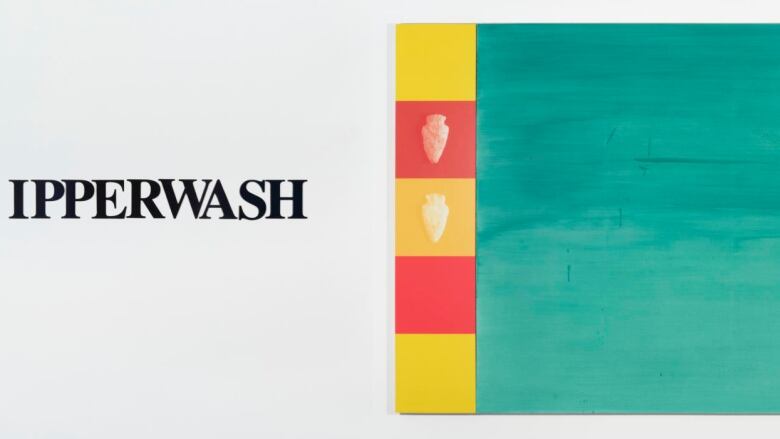Museum London marks anniversary of Ipperwash crisis with new exhibit
The exhibit will include maps, interview testimony and photographs

Museum London is marking the 25th anniversary of the Ipperwash Crisis with a new exhibit.
Gaawiin Ogiibaagininaawaasiin, which translates from Anishinaabemowin to "they did not let it go," showcases artwork created by Anishinaabe artist Robert Houle, as well as maps, interview testimony and photographs which frame the events at Ipperwash.
"It looks at the Ipperwash crisis, but it's not exactly a commemoration," said Andrew Kear, senior curator and head of exhibitions at Museum London. "It looks more critically at the history that underlies the events that happened in 1995 at Ipperwash Provincial Park and also explores some of the aftermath."
The multimedia exhibition, co-curated by Summer Bressette and Monica Virtue, aims to highlight "the notable resistance and consistent lack of consent on behalf of the Anishinaabeg to surrender their homeland, their bodies, and their images to colonial power."
For generations, Anishinaabeg have lived along the shore of Gichi-aazhoogami-gichigaming, Lake Huron.
In May 1993, land defenders peacefully occupied a part of Camp Ipperwash, a military training base on Anishinaabeg territory that had been appropriated by the federal government during the Second World War.
The government promised to return the land to the First Nations after the war was over, but never did.
The protest continued into the summer of 1995. By the fall, Indigenous land defenders established the former 109-acre Ipperwash Provincial Park as the base of their protest.
On September 6, Anthony "Dudley" George was shot by an Ontario Provincial Police officer while occupying the provincial park. He was unarmed, and died before reaching the hospital.
The province announced its intention to return the park to the Anishinaabeg of Kettle and Stony Point First Nation in 2007.
Monica Virtue is one of the co-curators of the exhibition. She hopes people visiting the exhibit walk away with a different understanding of the crisis.
"Me being a settler, as a white person, I hope that other people like me can begin to have a better understanding of where First Nations are coming from, of where Indigenous peoples are coming from when they talk about land and they talk about the importance of honouring treaties."
"If people can understand the Ipperwash crisis, they can understand every other Indigenous conflict across North America," the filmmaker added.
The exhibit will be opened Thursday to Sunday from 11 a.m. to 12 p.m. for seniors, and 12 p.m. to 5 p.m. to the general public. Admission is by donation.